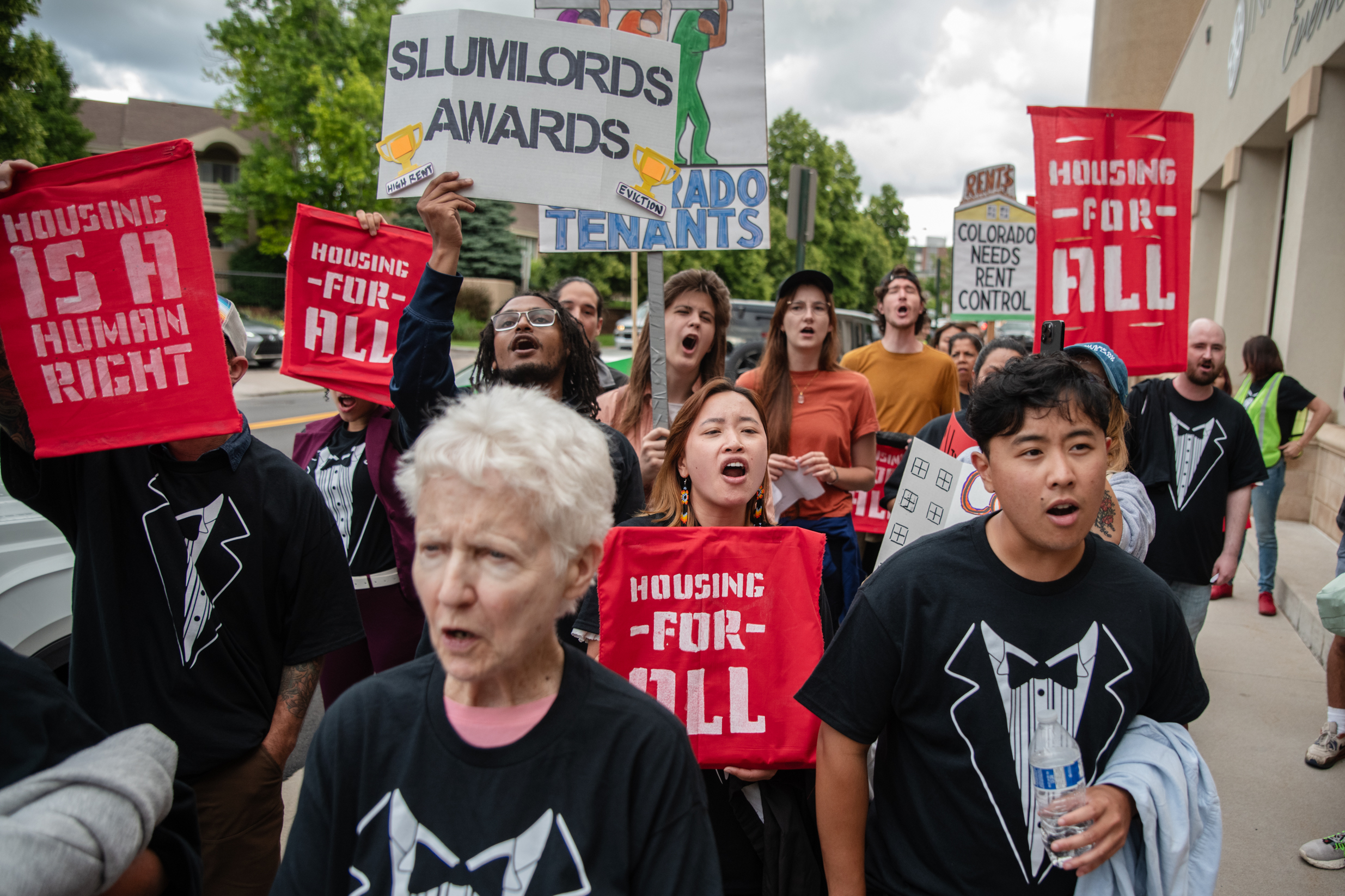The tenant roundtable focused on hidden fees, habitability and rent-setting algorithms accused of driving up the cost of housing
In a roundtable Friday with Federal Trade Commission Chair Lina Khan, Colorado Attorney General Phil Weiser pledged to work closely with federal investigators to crack down on “abusive and predatory practices” by corporate landlords — a sign that housing may soon become a larger focus for the state’s top enforcer of consumer protection laws.
“We need to get the word out,” Weiser said. “The goal is, if landlords know there will be consequences for them failing to follow the law, they’re going to be more motivated to follow the law.”
Khan and Weiser met with renters and legal advocates at the Community Economic Defense Project at their North Capitol Hill office in Denver, where tenants shared stories of rising rental fees, deteriorating living conditions and feelings of helplessness when they had nowhere to turn for assistance.
“A big pain point that we’ve been hearing about for some time now is potentially abusive practices in the housing market, especially for renters,” Khan said at the event.
In her remarks, Khan focused on two areas as top concerns for the FTC: hidden fees and computer algorithms that landlords now use to screen tenants and set the price of rent.



Eh, there are valid reasons for corps to own housing. We just need strict rent control, and ratcheting taxes on vacant homes, so taxes increase when you have more vacant properties. Make it unprofitable to intentionally sit on empty houses.
That latter part is a large problem right now; Corporate landlords are buying thousands of houses, then intentionally only renting a few of them. By sitting on a bunch of vacant houses, they’re artificially reducing the supply and dramatically increasing rent in the few properties they do rent.
Hell, I’d even be in favor of increasing taxes based on how many homes you own. One or two houses? Great, that’s enough for a summer and winter home. But after that, taxes should dramatically increase so owning additional homes (to use as rental properties) becomes less and less appealing.
Rent control can be a double edged sword, leading to lower quality homes and less development - there’s no reason to build or fix homes that don’t make money. Government subsidies and oversight help a little.
I do like the idea of taxing empty homes, though. It could even be progressive so the more empty homes, the higher the tax. Corporations would lower rents to avoid the penalty.